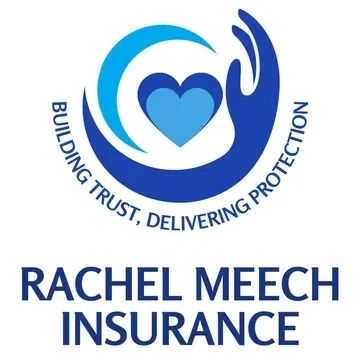FAQ
Rachel Meech Insurance
Start here
Rachel Meech Insurance
FAQ
What is Medicare?
Medicare is a federal health insurance program in the United States that provides coverage for eligible individuals aged 65 and older, as well as certain younger individuals with disabilities or specific medical conditions.
What are the different parts of Medicare?
Medicare is divided into several parts:
● Medicare Part A: Hospital insurance that covers inpatient hospital stays, skilled nursing facility care, hospice care, and some home health services.
● Medicare Part B: Medical insurance that covers doctor visits, outpatient care, preventive services, and medical supplies.
● Medicare Part C (Medicare Advantage): An alternative to Original Medicare (Part A and Part B), offered by private insurance companies, which often includes prescription drug coverage (Part D) and additional benefits.
● Medicare Part D: Prescription drug coverage that can be added to Original Medicare or obtained through a Medicare Advantage plan.
Am I eligible for Medicare?
You are generally eligible for Medicare if you are 65 years or older, a U.S. citizen or permanent resident, and you or your spouse has paid Medicare taxes for at least 10 years. There are also eligibility criteria for individuals under 65 with disabilities or certain medical conditions.
When can I enroll in Medicare?
You can enroll in Medicare during the Initial Enrollment Period (IEP), which starts three months before your 65th birthday month and lasts for a total of seven months. There are also Special Enrollment Periods (SEPs) for certain qualifying events, and an Annual Enrollment Period (AEP) from October 15 to December 7 each year
What does Medicare cover?
Medicare provides coverage for a wide range of medical services, including hospital stays, doctor visits, preventive care, medical tests, surgeries, durable medical equipment, and some prescription drugs. The specific coverage depends on the parts of Medicare you have and the plans you choose.
Will Medicare cover all my healthcare expenses?
Medicare covers a significant portion of healthcare costs, but it doesn't cover everything. There are deductibles, copayments, and coinsurance that you may be responsible for. Additionally, some services, such as dental, vision, and long-term care, are not typically covered by Medicare.
Can I have other health insurance alongside Medicare?
Yes, many individuals have additional coverage alongside Medicare to help with costs not covered by Medicare. This can include employer-sponsored coverage, retiree health plans, Medicaid, or Medicare Supplement Insurance (Medigap) policies
How do I choose between Original Medicare and Medicare Advantage?
The decision between Original Medicare and Medicare Advantage depends on your specific needs and preferences. Original Medicare offers a wide choice of healthcare providers, while Medicare Advantage plans often have networks and may offer additional benefits. Consider factors like costs, coverage needs, preferred doctors, and prescription drug coverage when making your decision.
What is the Medicare Part D "donut hole"?
The Medicare Part D coverage gap, often referred to as the "donut hole," is a temporary limit on what a Medicare drug plan will pay for prescription drugs. Once you reach this threshold, you may be responsible for a higher percentage of the costs until you reach catastrophic coverage.
How do I find out what Medicare plans are available in my area?
You can use the Medicare Plan Finder tool on the official Medicare website (medicare.gov) to compare and find Medicare plans available in your area. You can also consult with a licensed insurance agent or contact Medicare directly for assistance.
What is an annuity?
An annuity is a financial product designed to provide a steady income stream over a specified period or for life. It can be purchased through an insurance company and is commonly used for retirement planning.
Are annuities risky investments?
The level of risk associated with annuities depends on the type chosen. Fixed annuities offer a guaranteed interest rate, providing more stability, while variable annuities are linked to investment performance and carry market risk. It's important to understand the risks and benefits before investing in an annuity.
Can I rollover my 401(k) while still employed?
It depends on your employer's plan rules. Some plans allow in-service rollovers, while others do not. Consulting with your plan administrator or a financial advisor can help determine if you're eligible for an in-service rollover.
Will I face tax consequences when rolling over my 401(k)?
In most cases, a direct rollover from a 401(k) to an IRA or another employer-sponsored retirement plan is not a taxable event. However, if you choose to receive the funds directly, you may face taxes and penalties.
